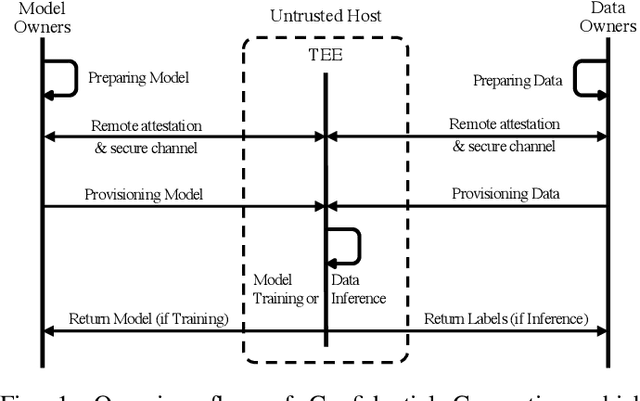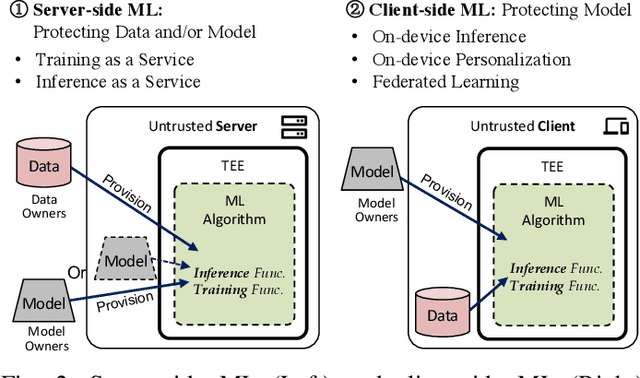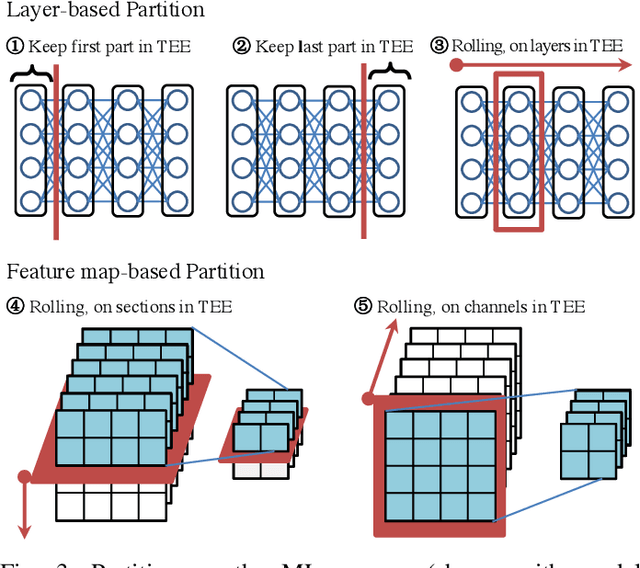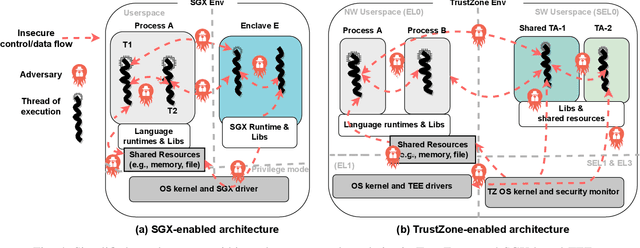Zahra Tarkhani
SoK: Machine Learning with Confidential Computing
Aug 22, 2022



Abstract:Privacy and security challenges in Machine Learning (ML) have become a critical topic to address, along with ML's pervasive development and the recent demonstration of large attack surfaces. As a mature system-oriented approach, confidential computing has been increasingly utilized in both academia and industry to improve privacy and security in various ML scenarios. In this paper, we systematize the findings on confidential computing-assisted ML security and privacy techniques for providing i) confidentiality guarantees and ii) integrity assurances. We further identify key challenges and provide dedicated analyses of the limitations in existing Trusted Execution Environment (TEE) systems for ML use cases. We discuss prospective works, including grounded privacy definitions, partitioned ML executions, dedicated TEE designs for ML, TEE-aware ML, and ML full pipeline guarantee. These potential solutions can help achieve a much strong TEE-enabled ML for privacy guarantees without introducing computation and system costs.
Enhancing the Security & Privacy of Wearable Brain-Computer Interfaces
Jan 19, 2022



Abstract:Brain computing interfaces (BCI) are used in a plethora of safety/privacy-critical applications, ranging from healthcare to smart communication and control. Wearable BCI setups typically involve a head-mounted sensor connected to a mobile device, combined with ML-based data processing. Consequently, they are susceptible to a multiplicity of attacks across the hardware, software, and networking stacks used that can leak users' brainwave data or at worst relinquish control of BCI-assisted devices to remote attackers. In this paper, we: (i) analyse the whole-system security and privacy threats to existing wearable BCI products from an operating system and adversarial machine learning perspective; and (ii) introduce Argus, the first information flow control system for wearable BCI applications that mitigates these attacks. Argus' domain-specific design leads to a lightweight implementation on Linux ARM platforms suitable for existing BCI use-cases. Our proof of concept attacks on real-world BCI devices (Muse, NeuroSky, and OpenBCI) led us to discover more than 300 vulnerabilities across the stacks of six major attack vectors. Our evaluation shows Argus is highly effective in tracking sensitive dataflows and restricting these attacks with an acceptable memory and performance overhead (<15%).
 Add to Chrome
Add to Chrome Add to Firefox
Add to Firefox Add to Edge
Add to Edge